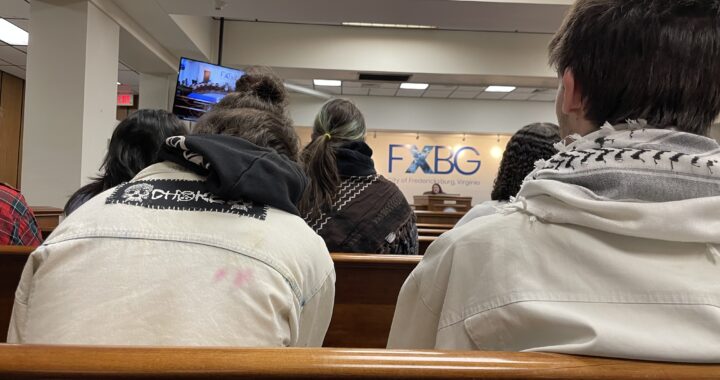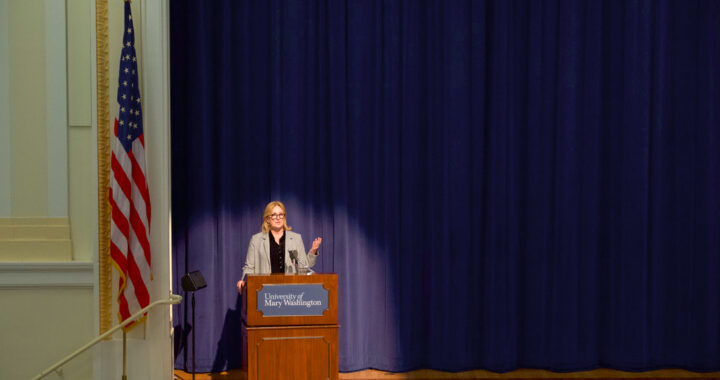Jailhouse (Doesn't) Rock
3 min readBy ANDREA NEALON
It was mail call on a hot summer day at the Fluvanna Correctional Center for Women, and one inmate was livid.
“I don’t know who the new bitch in the mail room is,” the inmate screamed, “but I’ll kill her if I get the chance.”
The “new bitch”, and the cause of the inmate’s rage, was University of Mary Washington junior Jessica Bellah.
Bellah, who has worked at the prison during school breaks for the past two years, had withheld a letter under suspicion that it contained illegal contraband.
But Bellah wasn’t too worried.
Though death threats were rare, it wasn’t uncommon to have inmates lash out at her – at least verbally.
“One day they’ll be nice and friendly to you, and the next they’ll call you names,” she said. “I just try to ignore them.”
Among her duties at the Center, Bellah is responsible for sorting through the mail.
“I had to withhold mail from that inmate because it may have contained contraband,” Bellah said. “I wasn’t sure, so my supervisor had to double check.”
Items considered contraband include, but are not limited to, gang symbols and child pornography.
“On a day-to-day basis, it’s surprisingly normal,” Bellah said. “Sometimes you forget that you’re actually in a prison with murderers.”
The Center opened in 1998 and averages around 900 inmates, many of whom serve single or multiple life sentences.
Bellah, a Historic Preservation major from Charlottesville, became involved at the Fluvanna Correctional Center through a family friend as a means to pay for college.
To be eligible for employment, the job requires a background investigation, pre-employment drug testing, and random employee drug testing.
She began working at the Center in the summer of 2007, and continues her employment when she travels home for summer and winter breaks.
“At first I found it really strange,” Bellah said. “Everything is very strictly monitored, but eventually it just becomes so incredibly normal.”
Bellah’s co-workers also acknowledge the fact that their job is atypical.
“I work mostly within the administration,” Bellah said. “Some of the things I’ve heard about certain prisoners and their histories…well, I’m not supposed to talk about that.”
Bellah’s responsibilities include listening to evidence tapes and taking notes on the proceedings. She also records inmate cell assignments and attends hearings for offenses committed while incarcerated.
These crimes within the prison include possession of contraband items, fighting, lying, and sexual relations with other inmates.
“It’s like a soap opera with all the drama and the jealousy,” she said.
The punishments for smaller crimes within the prison include the revoking of privileges such as TV, magazines and privacy.
Some are required to sit in segregation, which is a panoptic, barren room. This is especially dreaded because inmates are unable to enjoy the luxuries of the Day Room which has cable TV and couches.
Bellah says that many of these incarcerated women have more commodities than poor people who don’t commit crimes.
Some families of these women send them extra money that they spend on food, lingerie, and magazine subscriptions.
“Sometimes homeless women commit petty crimes, so they will be taken to prison. They spend the winter there so they won’t freeze to death on the streets,” Bellah said. “Usually they’re released by the summer, but some return every winter.”
One positive thing that Bellah sees while working at the Center is an improvement in literacy.
“It really depends on what people do with their time in prison; some really do better themselves and leave for good, but others come right back,” she said.
Bellah has no plans to pursue her job at the Fluvanna Correctional Center as a career. She plans to leave it after graduation.
“It wears on you emotionally and psychologically,” she said. “That’s probably why there’s a huge employment turnover.”











